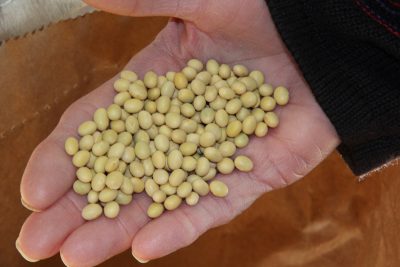Trade War: China Suspends Purchases of US Agricultural Products
President Trump's decisions of increasing fees on Chinese exports will affect U.S. farmers and increase uncertainty about the future of international trade.

China’s Commerce Ministry announced Tuesday that the Asian country will suspend the purchase of U.S. agricultural goods in response to the recent announcement that the President Donald Trump administration will increase tariffs to Chinese exports.
“It has been agreed that the State Council’s Customs Tariff Commission does not rule out import levies on newly acquired U.S. agricultural products after August 3, and related Chinese companies have suspended the purchase of U.S.agricultural products,” the Commerce Ministry said.
On July 1, Trump said that China had not fulfilled a promise to buy large volumes of U.S. farm products and vowed to impose a 10 percent fee on US$300 billion of Chinese imports starting September 1.
The Commerce Ministry considered that such fare increase is “a serious violation” of what was agreed between Trump and President Xi Jinping at the June G20 summit in Osaka.
The Chinese announcement is a response to a trade war unleashed by President Trump in 2018, which intensified when he announced new tariff measures last week, allegedly because trade negotiations had not progressed.
On Monday, as a result of unilateral actions by U.S., China let its currency weaken past the key 7-yuan-per-dollar level for the first time since April 2008.
A weaker yuan means that Chinese dollar-denominated products are cheaper, which would help China to curb the negative effect of the U.S. tariffs on its competitiveness, although the price to be paid is an increase in the cost of the goods imported by China from the rest of the world.
Farm incomes DOWN 50% before #China said they would buy ZERO #agriculture from the #US. #Tax payers can’t afford your $16 BILLION in #Government handouts to farmers x 2. Boy, you are a closet #SOCIALIST! China does NOT pay your #protectionist #tariffs you moron. pic.twitter.com/Cwzp5p7v3f
— BxKnd (@bixkondor) August 6, 2019
In response to the yuan’s devaluation, the U.S. Treasury Department accused China of being a “currency manipulator” and threatened to engage with the International Monetary Fund(IMF) to end the “unfair competitive advantages” of the Asian country.
The trade war fueled by President Trump has already had adverse effects on the U.S. agriculture. China purchased about 14.3 million tonnes of last season’s soybean crop, the smallest purchase in the least in 11 years. In 2017, however, China bought 32.9 million tonnes of U.S. soybeans.
Neverthless, Trump’s first wave of measures did not halt the flow of exports to China. Between July 19 and Aug. 2, for instance, China bought 130,000 tonnes of soybeans, 120,000 tonnes of sorghum, 60,000 tonnes of wheat, 40,000 tonnes of pork and products, and 25,000 tonnes of cotton from the U.S.
In order to compensate for the trade-war related short-term losses, the U.S. farmers can start applying for the next round of trade aids this month; however, uncertainty is destroying their business expectations.
“There’s just so much volatility right now because nobody knows the rules of the game and nobody knows how to look at things going forward,” Derek Sawyer, a corn, soybean, wheat and cattle farmer from McPherson, Kansas, said.
*
Note to readers: please click the share buttons above or below. Forward this article to your email lists. Crosspost on your blog site, internet forums. etc.
Featured image is from USDA/Flickr CC BY 2.0

